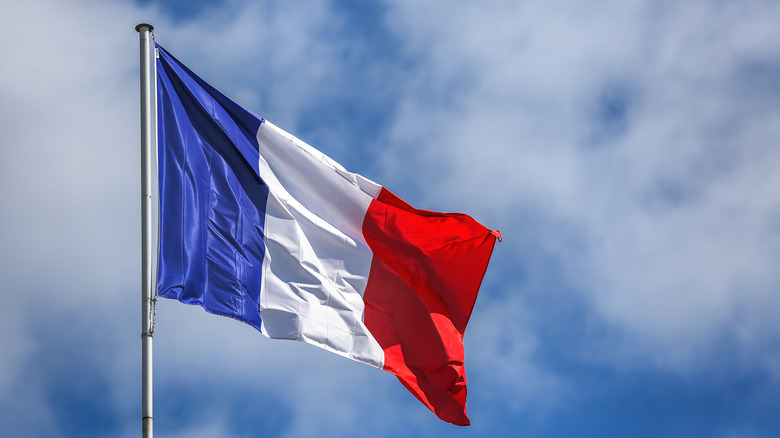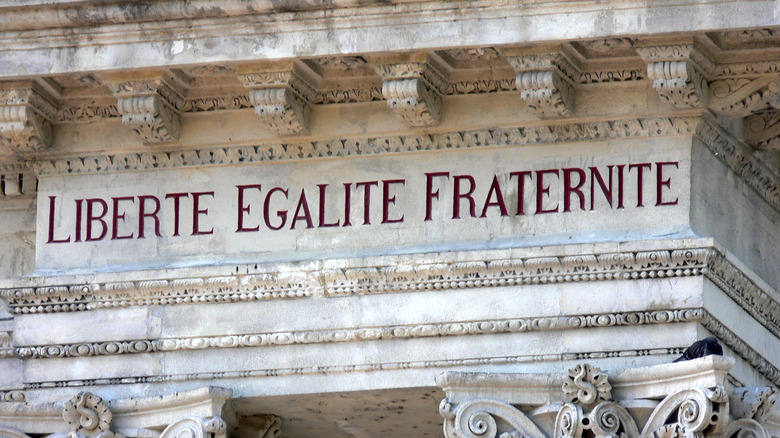How The American Revolution Impacted The French Revolution
From the French perspective, the political opportunities presented by the American Revolution were perhaps best described as a mirage. In the preceding decades, France not only lost the Seven Years War, but all of its North American territory. By 1778, Britain's war against the American revolutionaries had stretched their forces so thin that France and Spain amassed a huge navy with which to invade the island kingdom (via Unveiling Memories). Nothing ever came of it, but the British took it as a very serious threat while the two powers and the Americans continued to wear them down in North America.
The American Revolution was in many ways a French naval victory, as it was their warships and supplies which kept the British from gaining a decisive advantage in the war on land (via Battlefields). Yet not long after the war concluded and the United States became a sovereign republic, the reality of how much France indebted itself became clear. The people of France, having additionally faced a series of famine-inducing droughts and inconsistent tax rates while the government enabled the feudalism they lived under, revolted just as their wartime allies across the ocean had.
Jefferson helped guide the creation of the First French Republic
Marquis de Lafayette played a major role as a military commander in the later stages of the American Revolution, often best known for his leadership at the Battle of Yorktown. When he returned to France, Lafayette became a key figure of the revolutionary faction, despite being an aristocrat himself. With the help of American Constitution author Thomas Jefferson, who was in France at the time as the American ambassador and incidentally became a supporter of the Revolution, Lafayette wrote the "Declaration of the Rights of Man and of the Citizen" (via History).
This document in many ways mirrored the American Constitution and Bill of Rights, as it was intended to similarly address the wants and needs of the French people. With such developments, enthusiasm across the Atlantic was stoked by Jefferson's supportive accounts of the Revolution, which refused to pay much mind to the increasingly bloody proceedings. Instead, he favored focusing on objective policy reforms and drawing overarching parallels to their own independence (via Journal of the American Revolution). Had President Washington not implemented a policy of strict neutrality, it is possible that with such fervor, the U.S. may have even gone to war in defense of its ideological brethren (via Mount Vernon).

